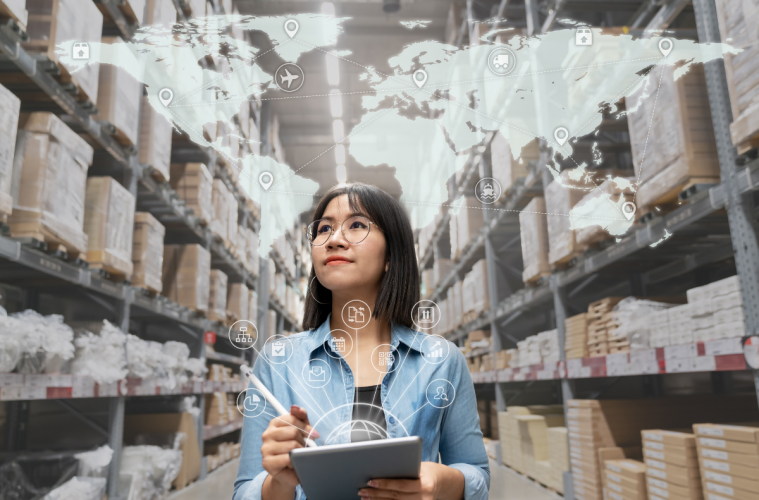![]() Trading internationally can help you to grow, but it’s important to choose the right partners and be aware of the financial and legal implications. When looking overseas, it’s not just who you choose as a global supplier that matters, but also how you manage your relationship, what legal obligations you have and how to move money across the globe in a cost-effective manner.
Trading internationally can help you to grow, but it’s important to choose the right partners and be aware of the financial and legal implications. When looking overseas, it’s not just who you choose as a global supplier that matters, but also how you manage your relationship, what legal obligations you have and how to move money across the globe in a cost-effective manner.
Here are three areas that need particular attention.
Manufacturing and shipping

Some of the advantages of sourcing from overseas suppliers are lower costs of manufacturing and a larger number of manufacturers and suppliers to choose from. The downsides include potential lower-quality products and longer shipping times, with the latter becoming more of an issue due to Covid-19.
Australian coffee roaster and equipment supplier Dipacci Coffee Company, for example, imports equipment from around the world and has experienced delays in its supply chain from Germany and Italy.
“It’s definitely been challenging with the increases in shipping and waiting,” says sales manager Damien Galea. “We’ve absorbed most of this ourselves. But there are little hiccups like when something got delivered to New Zealand that was the wrong colour.” Wanting the customer to be happy, they absorbed the charges to get it back and send a replacement.
Using a logistics partner
If you’re shipping products from overseas, you have the option of working with a logistics partner that organises everything for you, from taking care of the documentation, customs clearance, tax implications and making sure your products get from A to B.
This option offers ease and efficiency but naturally you’re paying a premium for the service. Average spend on logistics could be between 10-20% of your sales.
Partner with different companies
Another option is to partner with several different companies, which requires time and attention on your part to manage. You may decide to ship most parcels with Aramex, for example, but arrange express postage with FedEx. This means navigating two different platforms and keeping tabs on two sets of invoices. There are also additional specialist services available to help you prepare relevant documents or gain special licences.
Do it yourself

Finally there’s the DIY option where you partner with various freight companies, but take on the work of sorting out all the documentation or licences yourself, as well as picking up your shipments from the port rather than having them delivered directly to you. On paper, this option might seem the most cost-effective, but it’s not necessarily the case when you factor in the cost of your time and the implications of getting things wrong.
There are also ethical considerations in choosing a global supplier. While it may be cheaper to manufacture your products overseas, what is the potential trade-off in terms of fair labour practices and factory conditions? Does the manufacturer or supplier share your values? Compared with onshore manufacturers, offshore companies may be harder to investigate yourself.
Hiring a manufacturing or supply agent, who is local to the area, can often help you source ethical suppliers and they many even visit facilities to check the conditions at your request.
Make sure you investigate, as much as possible, the quality of your goods, as well as customer service. Particularly if you’re running an eCommerce business and using a dropshipping model, where the supplier delivers to your customer and you have little control over the process, a negative experience can damage your brand.
Having solid legal agreements in place is essential to mitigating any issues that may arise during the manufacturing and shipping process, especially noting who is liable if something goes wrong.
Tax implications
When choosing a global supplier for your business, make sure you’re abreast of all relevant tax payments you may be required to make. Some industries, such as alcohol, attract higher taxes and these may vary from country to country. You’ll need to know what the tax implications are for every country that you ship to.
If you’re importing goods into Australia, check if you need to pay GST on these or whether you’re covered by an exemption. It’s also worth investigating other concessions you may be eligible for, such as free trade agreements Australia has with other countries which could lower your importing costs.
Again contracts such as an import/export or distribution agreement are essential so make sure you seek legal and financial advice from qualified and registered practitioners in these areas.
Payments
When you’re importing or exporting goods, volatile currency fluctuations and exchange rates can impact your business. You need easy access to foreign currency and to be able to transfer monies quickly, easily and securely without massive charges.
WorldFirst is an international payment provider based in Australia that offers exporters exchange rates much lower than banks, along with access to locally-based currency accounts in 10 currencies to collect, hold and pay from one platform.
If you’re a small business, many overseas suppliers won’t accept an invoice in Australian dollars, so with a Collections Account, you can invoice and pay suppliers in local currencies.
For eCommerce businesses that sell on marketplaces such as Amazon or Alibaba or use a website payment gateway, adding local currency account details allows you to receive funds quicker. It’s also more attractive to customers who no longer have to worry about the foreign exchange conversions and can clearly see the actual cost to them.
Dave Alexander, Managing Director of toy brand Connetix Tiles, sells in 45 countries around the globe. “We prefer to have all our customers pay us in their currency,” he says, “and WorldFirst enables us to do that.”
Connetix Tiles also uses WorldFirst to pay overseas suppliers and warehouses in their local currency.
Using WorldFirst for his international transfers has changed the way Ben Cawood, owner of Sydney-based Caden Carbon Wheels, does business too.
Previously, customers who bought his bicycle carbon racing wheels internationally and online had to cop an extra 4 percent by paying with their credit cards, while Ben was being charged 5.5 percent on card transactions.
Now, more than 80 percent of his clients pay with the zero-fee bank transfer option in their own country and currency which Ben says has been a “gamechanger” for his business.
“I’ve been able to now focus on providing even better rates to those clients,” he says. “So instead of having to up the prices to absorb those extra fees, they’re getting better value, funds are coming to me quicker and it’s been really amazing for us.”
Do global business like a local with WorldFirst
Find out why over 250,000 clients around the globe have chosen WorldFirst for their international money transfers.
- Same-day transfers on major currencies
- Market-leading exchange rates with no hidden fees
- Dedicated account management team

Disclaimer:
These comments are the views and opinions of the author and should not be construed as advice. You should act using your own information and judgement. Whilst information has been obtained from and is based upon multiple sources the author believes to be reliable, we do not guarantee its accuracy and it may be incomplete or condensed. All opinions and estimates constitute the author’s own judgement as of the date of the briefing and are subject to change without notice. Please consider FX derivatives are high risk, provide volatile returns and do not guarantee profits.


